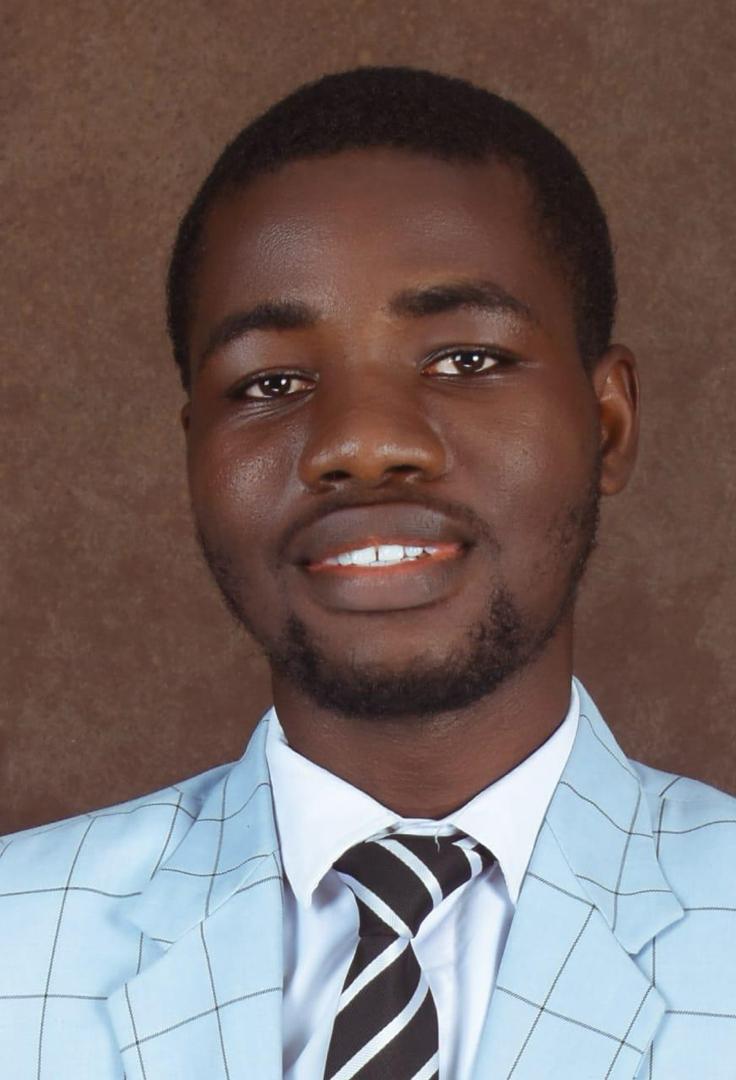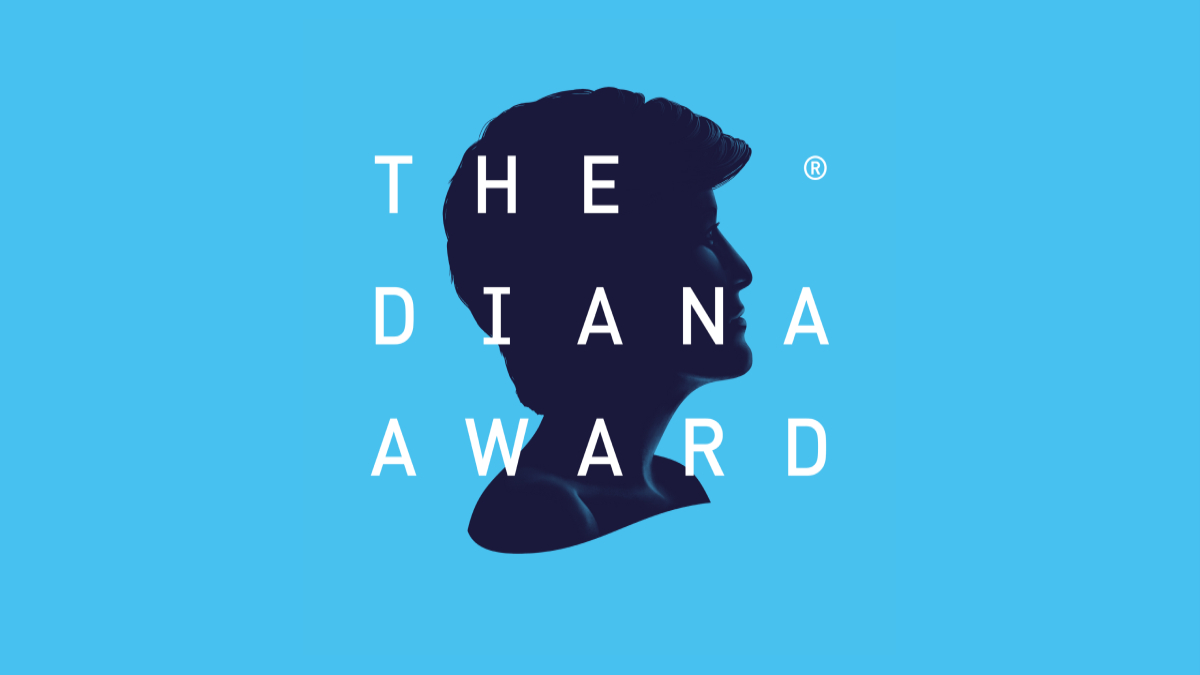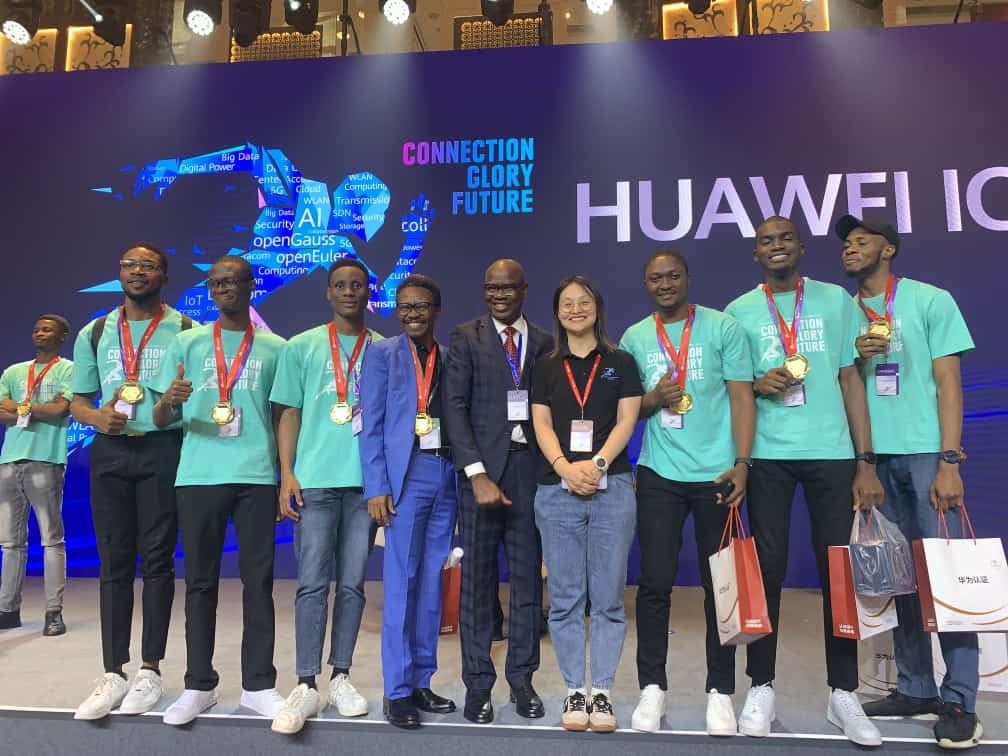LIGATURE PROJECT: Interviews With Tech-Savvy UIMSAites 1.0

Olumide Adeola is a multifaceted individual with a passion for both science and art. Not just a medical student, he is also a skilled programmer, adept at harnessing technology to solve complex problems and streamline processes. Beyond his professional pursuits, he finds solace in music. As a pianist, he expresses his creativity and emotions through the elegant melodies and harmonies of the piano. Music serves as a source of inspiration and personal fulfillment in his life.
Q: Hello, Olumide. We are pleased to have you here. Can you briefly introduce yourself?
Olumide: Good day, I am Olumide Adeola from the 2k26 class. I am also a programmer.
Q: Can you tell us a bit more about what you do? You could mention a few projects you have undertaken.
Olumide: My interests in tech lie in the areas of data science, software engineering, and cybersecurity. In data science, I undertook a project about a breast cancer data set. It was a classification project that helped to predict the likelihood of a patient having breast cancer. In software engineering, I have developed software applications concerned with telemedicine. I have also contributed to quite a host of other applications.
Q: That’s amazing! Can you tell us how your journey in tech started? What spurred your interest in tech?
Olumide: Just the way we have left-brained and right-brained people, we all have different interests too. My journey in tech started during my first degree. I took a course that introduced me to Python. I remember the course was CSC201. I really loved the course as it made me discover that I am logically driven. I went beyond the course and started learning other areas. I believe it all aligned because of the passionate interest I had in the course.
Q: Awesome! What has been the drive fueling your adventure?
Olumide: I am very passionate about problem-solving. It has always been about creating solutions, and that is one of the powers technology gives. It drove my curiosity and desire to create innovative solutions that are relevant in various fields. Curiosity and passion for problem-solving have been key.
Q: Curiosity is indeed crucial to whatever endeavor one pursues. What has been your greatest challenge in tech so far?
Olumide: Bugs are every developer’s arch-nemesis. Encountering bugs slow down my projects and can be frustrating at times. Asidefrom bugs, getting the right resources was a huge difficulty while starting. I had problems with network provision, devices, power supply, and other learning resources. Specifically with computers, I often could not get a laptop with the right specifications for the specific project I wanted to undertake. There was a time when I did not have a laptop at all. When I got one, it did not have the tools like the required processing power and RAM for the project. For cybersecurity, it took me more than a year to get the right laptop and I fell behind at a time. It was a major issue but I thank God I eventually caught up.
Q: How did you overcome those challenges?
Olumide: I was very persistent so I moved closer to people around me with the right resources. It meant I had to stay with them sometimes so that I wouldn’t miss out too much. I also saved up money to get the right laptop. Power supply remains a challenge because of the present situation of the country.
Q: How have you been able to balance medical school with tech?
Olumide: A saying goes, “Good preparation yields good results”. Preparing for each day has helped me. I set timetables per day because I discovered that one would take up the other’s space if I did not plan well. Medical school and tech both take a lot of time so striking a balance was necessary. Discipline and persistence have also helped me to remain focused on the two fields.
Q: What were the materials that helped you during your newbie days?
Olumide: When I started, I had access to course materials from the school. Aside from the course materials, there were tutorials scheduled for us, where we were able to meet instructors in person. We wrote the codes, and those tutorials helped in my early days. Over time, I got access to documents that I read. Languages and other specializations in tech have documentation. So, I had access to them. Another thing that helped was meeting people who were far ahead of me, and I was able to learn from them. Those were what formed a bulk of the materials I was using to learn – documentation, one-on-one tutorials with course instructors, and the course materials we used.
Q: What starter pack would you suggest for a medical student who knows nothing about tech and wants to delve into it?
Olumide: One is the place of having the right information. That tops the list of whatever is going to be the content of the starter pack. Having access to the right information is important because the fact that we had the course then didn’t mean that I knew what the uses of the languages were. The language we had then was Python but that did not mean that I knew what it was used for. Therefore, it’s important to get the right information. A good starter packer entails good documentation (because some documentation is easily cracked) and tutorials from experts online through edX, Coursera, or Udemy. A newbie should also join communities and forums where knowledge is shared like Stack Overflow and attend bootcamps and workshops. YouTube channels like Fireship also give first-hand information on tools. Furthermore, getting a device with high capacity and processing power is crucial. Afterward, the person should have a mentor who will guide his or her journey.
Q: Can you tell us about one random feedback you got about your work in tech that has stayed with you to date?
Olumide: Like I said, I am very passionate about problem-solving. One such feedback was the time I was working with a school and I saw the need to help them with the many papers they were dealing with. So, I came up with the development of an e-portal application for the school. The feedback was so encouraging because, at that time, I was very busy. I just decided to create something. I developed that with PHP at that time. I used to be a shy person. The principal brought me out and announced that particular work to the teachers, the students, and the members of the school. The feedback on that work was an encouraging one and it has stayed with me even till now. That was one major feedback, in terms of work, that stayed with me.
Q: For newbies who want to delve into tech as medical students, how do you advise them to go about it?
Olumide: There is a lot of information so if a medical student is planning to delve into tech, I will suggest he or she comes in contact with the right person to give a soft landing in getting the right information. In getting the right information, he or she understands that there’s a roadmap, just like in medicine or any other area. So, there’s a map that has to be understood, and once that’s done, once there’s enough information, the person can choose a niche and back it up with curiosity and persistence. So, the first thing I mentioned is getting the right information. The person should choose a niche because that’s what will inform what language, what materials to utilize, or what tools to learn. Furthermore, the person should go on with curiosity and persistence.
Q: If you were to go into tech again for the first time, what would you have done differently?
Olumide: What I would have done differently was get the starter pack like I suggested earlier. Of course, I had the curiosity, I had the energy but all that did little without proper information. So, I would have answered the questions: what language do I learn to get into a particular niche? And why were these languages there in the first place? Because the course I took then was just something to pass and move on from, I feel I did not get the best from it. So, I would have met a mentor and gotten the proper information, understood the layers in tech, and how they are mapped. It took me some years to finally get hold of that so that’s one thing I would have done differently.
Q: Tell us one thing you think people do not know about tech.
Olumide: The “I Love You” virus, also known as the Love Bug, was a computer worm that emerged in May 2000 and became one of the most notorious examples of a cyber threat. It spread through email, cleverly disguised as a love letter with the subject line “I Love You”. When users opened the attachment, it not only overwrote files but also sent itself to everyone in the recipient’s contact list. What makes this virus particularly significant is how it highlights the role of human frailty in cybersecurity and tech generally. From developers making inevitable mistakes in code to users falling for phishing tactics, these vulnerabilities remain a major challenge. This underscores the need for continuous updates, patches, and improvements in security protocols. Hence as technology continues to evolve, so do the threats we face, meaning the journey seems to have no end in sight. It’s a continuously expanding field, reminding us that vigilance and continuous adaptation to emerging fields, robust security postures, and continuous learning are essential in our digital landscape.
Q: That’s deep! Now to the billion-dollar question. If you had to choose one, which would you choose between tech and medicine?
Olumide: I am caught in between. It’s a very tough one because my passion lies in the two. They both involve problem solving so I don’t want to be caught in the web of favouritism. I love the two and my sole purpose now is to find the areas of bridging these two. They are not mutually exclusive. They work together though they are dependent fields. That’s how I will put it. It’s very hard to choose. I love both of them.
Emmanuel Ibitunde and Daniel Adeniji.


